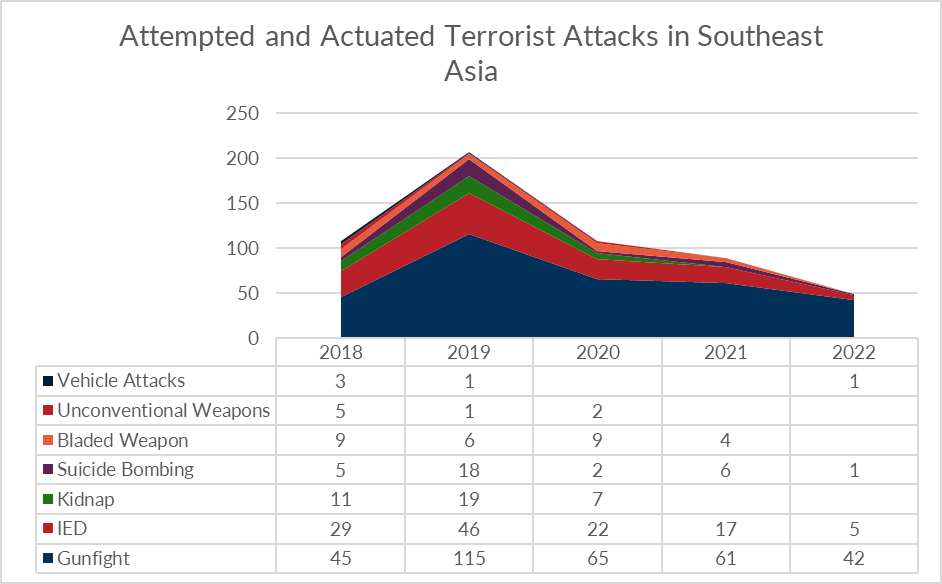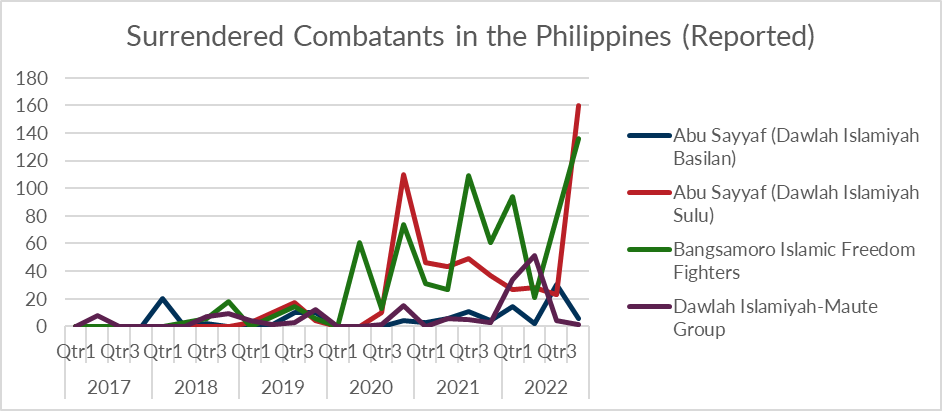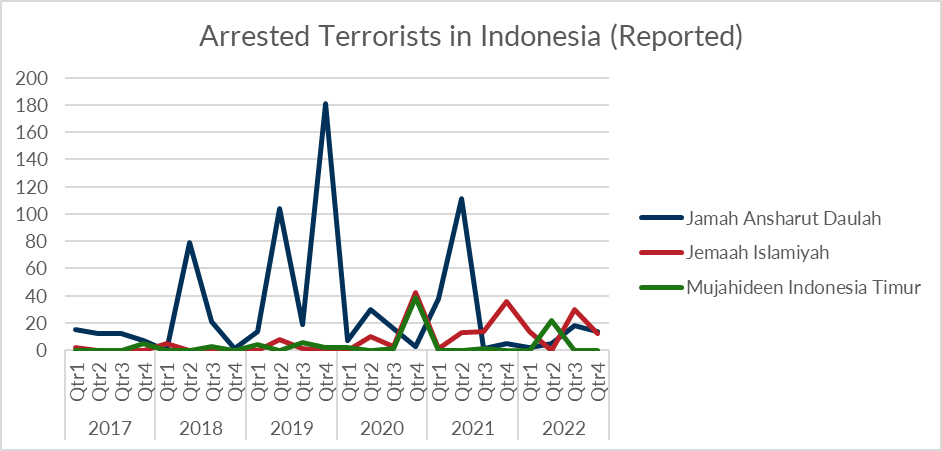ISIS media machine for Malaysia? "It's more like forging gale from gust."
'Fearmongering is counterproductive to counterterrorism.'
Opinion by: Kenneth Yeo
Introduction
On 5 March 2023, Malaysian news site the Vibes published an article that exaggerated the threat of the “Al Malaka Media Centre” (to be referred to as “Al Malaka”). The article cited the Nordic Counter-Terrorism Network (NCTN) which made three unsubstantiated assertions. Firstly, Al Malaka is linked to Islamic State (IS) media outlets in Indonesia and the Philippines. Secondly, that it is “in direct support of a ‘radical political party and an established radical organisation’” in Malaysia. Thirdly, that Al Malaka exists in the dark web. These claims are baseless and speculative at best.
Despite these assertions, the term “Al Malaka” cannot be found anywhere on the NCTN website. Did a member of NCTN actually make that claim and if so, why did it not publish his findings on the NCTN’s website? My article aims to provide an update on the terrorist landscape in Southeast Asia, unpack the credibility of these claims, and explain how terrorist groups such as the IS use the elusive Dark Web.
The State of Terrorism in Southeast Asia
When analysts write about terrorism in Southeast Asia, they often refer to Indonesia and the Philippines. This is because violent terrorist operations in the region occur most frequently in these two countries. However, IS-inspired terrorism in Southeast Asia is a rusted sword that appears to have lost its edge. There is a dramatic reduction of attempted and actuated terrorist attacks in Southeast Asia since the onset of the COVID-19 pandemic in 2020, and the trend is likely to persist in the foreseeable future.
Figure 1 displays the number of attempted and actuated terrorist attacks in Southeast Asia since 2018 (2017 was omitted because the Marawi Siege is an outlier in the cited database).

In Indonesia, there were only two successful terrorist attack between 2021 and 2022: the Makassar Cathedral Bombing (28 March 2021) and the Astana Anyar Police Station Bombing (7 December 2022). Authorities have even pivoted their attention from the IS threat towards the re-emerging Jemaah Islamiyah (JI) threat in Indonesia. The chart below highlights how reported terrorist-related arrests have also declined significantly in Indonesia despite the reduced rates of terrorist violence. A total of 991 terrorists affiliated to the JI, Jamah Ansharut Daulah (JAD), and Mujahideen Indonesia Timur (MIT) were reported to be arrested in Indonesia from 2017 to 2022.
The Dawlah Islamiyah (DI) threat in the Philippines has also reduced significantly. In my recent article, I highlighted how DI is learning but the threat is not escalating. The military has eliminated the leadership of DI groups consistently, overran DI’s strongholds, and eroded the ranks of DI by incentivising surrenders. Between 2017 to 2022, there were 1,614 reported surrendered DI combatants. Ultimately, terrorists in the Philippines have essentially lost the legitimacy to call themselves the East Asia Wilayat.

So where does terrorism in Malaysia fit in this landscape? Renowned Southeast Asian scholar, Zachary Abuza, tweeted in reference to the article published by the Vibes: “I’m not buying it. Zero IS attention to SEAsia esp #Malaysia today…” The quote should not be spun out of context. It is worth clarifying that while IS has not paid attention to Southeast Asia, non-violent terrorist activities still persist in the region. Terrorist groups continue to engage in subversive operations, infiltrating legitimate organisations to normalise extremism. Terrorists are practising i’dad (preparation) as they believe that they should not carry out attacks recklessly until they are ready.
What is Al Malaka?
On 1 March 2023, a channel administrator [hamba.allah.s.w.t] posted two pictures with the caption “Al Malaka Media Centre” on an Indonesian IS encrypted media platform. The first picture displayed a photo of horse riding mujahedeens carrying the IS flag. The second featured the Malaysian Twin Towers building with the caption Hari Penaklukan Segera Tiba (The Day of Conquest is Coming Soon). The second picture also came with the following caption:
Translated: God promises those who believe and do righteous deeds from among you that he will make them caliphs who hold the power of government on earth, just as he made those before them: powerful caliphs; and he will strengthen and expand their religion which he has pleased for them; and he will also replace them with peace after they have experienced fear. They continue to worship me without associating anything else with me. And whoever disbelieves after that, then those are the disobedient people
Regardless of the claims of a new media centre, the two pictures exist within an Indonesian IS platform. The user who published the two Al Malaka posts, [hamba.allah.s.w.t], is also the administrator of the Indonesian IS channel. As of 8 March 2023, there are no messaging application or platforms dedicated to Malaysian IS content. Al Malaka seems to be an afterthought.
Ultimately, to claim that there is a dedicated media outlet to producing IS content for Malaysians requires a good sense of creativity. Two pictures obscured amongst other messages translated in Indonesian do not justify the existence of an exclusive media centre. Due to the linguistic similarities between Indonesian and Malaysian, it is more likely for the IS leadership to leverage on existing Indonesian channels to reach out to Malaysian sympathisers.
Rebuttal #1: Al Malaka is Linked to IS Groups in Indonesia and the Philippines
The article published by the Vibes cited the NCTN claim that “the group is linked to IS media outlets in Indonesia and the Philippines…”. While Al Malaka was first reported by an Indonesian IS Channel, that is the extent of the linkage between Al Malaka and the Indonesian IS Channel. What’s more perplexing is that the newsmaker in the Vibes report claimed that the group is linked to IS media outlets in the Philippines. I have recently published an expose of the main IS media outlet in the Philippines, Al Faris Media Centre (previously known as the East Asian Knights). Despite my extensive research of that group, I personally have not come across any evidence linking Al Malaka to Al Faris.
One can only question the objective of this claim - was the purpose of this statement to sensationalise terrorism content? Fundamentally, claims that Al Malaka is linked to IS channels in Indonesia are misleading, and their links to IS outlets in the Philippines are highly dubious.
Rebuttal #2: Al Malaka is in Direct Support of a Radical Political Party
Readers can guess which political party the NCTN in the Vibes report were referring to in their claims. However, to make such a bold allegation, they should provide irrefutable proof that a member of the political party has published the content or has provided the content to the administrator of the Indonesian IS group to publish. As it stands today, neither is likely to happen.
Firstly, it was published by the administrator of the Indonesian IS media channel that published the two images. The user [hamba.allahs.w.t] has been religiously translating IS content from Arabic to Indonesian since the inception of the channel. The frequency of posts in this Indonesian IS channel is almost akin to a full-time job. It is thereby very unlikely for [hamba.allah.s.w.t] to be directly involved with a Malaysian political party.
Secondly, there is also no evidence indicating that a member of a Malaysian political party provided the content to [hamba.allah.s.w.t]. Moreover, there is no assurance that the posters were created by Malaysians themselves.
Hence, allegations that the political party is in direct support of Al Malaka are baseless or speculative at best.
Rebuttal #3: Al Malaka exists in the Dark Web
NCTN’s claims that Al Malaka exists in the Dark Web are very puzzling. Al Malaka is not on the Dark Web, and it is not a definitional issue. Because of the elusiveness of the Dark Web, society at large may be left to their imagination if the use of the Dark Web is not put into context. Mentioning the Dark Web without added context is fearmongering and sensationalises terrorism irresponsibly. The Dark Web does not refer to everything encrypted or password protected.
The two images of Al Malaka were found on RocketChat, an encrypted messaging platform like WhatsApp and Telegram. Like other messaging platforms, professionals would not consider the use of WhatsApp, Telegram, and RocketChat as the Dark Web. RocketChat is simply a messaging application with less regulation. Therefore, the claim that Al Malaka is on the Dark Web can only be a result of either NCTN’s poor comprehension of what the Dark Web is or an attempt to sensationalise terrorism content and mislead their readers.
What’s in the Dark Web?
The Dark Web is an elusive platform that can only be accessed by specialised browsers like The Onion Ring (TOR). Dark Web links tend to be scrambled unreadable alphanumeric strings ending with “.onion” extension. Individuals use the Dark Web for added anonymity because the TOR browser reroutes the individual’s internet traffic to multiple nodes, thereby obscuring the internet footprint of the user.
Hence, if the internet is used for radicalisation and recruitment, it is illogical for the IS to publish their content on the Dark Web. While the Dark Web obscures the identity of the user, it is relatively more difficult to access as compared to social networking platforms and messaging applications. Therefore, IS has not used the Dark Web for proselytisation.
Nonetheless, the IS run-Dark Web platform is operated by the I’lam Foundation. These dark web portals are repositories of publications, photo reports, videos, and Nasheed (religious songs). Despite having several Dark Web platforms, IS online activities suggest that that there are no immediate incentives for the organisation to maintain Dark Web portals. Hence, for every Dark Web IS page, there is a clear web duplicate.
Figure 5: IS in the Dark Web managed by the I’lam Foundation
Nobody actually knows why IS uses the Dark Web. Nonetheless, there are three potential explanations. From a functional perspective, IS’s move to the Dark Web could be targeted at acclimatising its constituents to the clandestine nature of terrorist operations. Criminals use the Dark Web for various illegal operations - buying firearms, selling drugs, and procuring hacking services. While IS Dark Web platforms have not made explicit moves in this direction yet, opportunities to improve the interoperability between terrorist and criminal groups are more possible on the Dark Web.
From an organisational perspective, IS could be striving to demonstrate technical redundancy as a means of projecting strength. It is not uncommon for organisations to replicate their efforts to maintain seamless operations, and this redundancy could also subconsciously communicate might and resilience to its enemies.
From an intrinsic perspective, establishing a Dark Web presence may serve no functional and organisational purposes. It might be the selfless pursuit of technological innovation driven by a few highly skilled hobbyists with the time and space to develop such capabilities. Nonetheless, IS presence on the Dark Web seems superfluous and its purpose is unclear.
Conclusion
The number of terrorist plots and attacks has declined significantly in Southeast Asia during the COVID-19 pandemic. Despite that, terrorists are still conducting subversive activities to normalise extremism.
On the other hand, fearmongering is counterproductive to counterterrorism as it weakens social cohesion. The recent assertions in the Vibes report sensationalise Islamist terrorism as it is based on misleading information and a poor understanding on the IS’s use of the internet. NCTN made bold claims without providing any evidence. Al Malaka is not linked to IS platforms in Indonesia and the Philippines. There is no evidence that Al Malaka is “in direct support of a radical political party”. And Al Malaka posts are not found on the Dark Web. The only information we have on Al Malaka is the fact that there are two pictures published about it on a very active Indonesian pro-IS chat group.
Commentators and scholars should also adhere to factual and substantiated analyses about extremist developments online. Speculations without facts undermine counter-terrorism research and can misdirect community and government counter-terrorism efforts in a period where most countries face resource scarcities.
ABOUT THE AUTHOR
Kenneth Yeo is a Senior Research Analyst at the International Centre of Political Violence and Terrorism Research (ICPVTR), S. Rajaratnam School of International Studies (RSIS), at Singapore’s Nanyang Technological University.






Kenneth, you provide important information in your piece. Thank you. I look forward to reading more of your work.